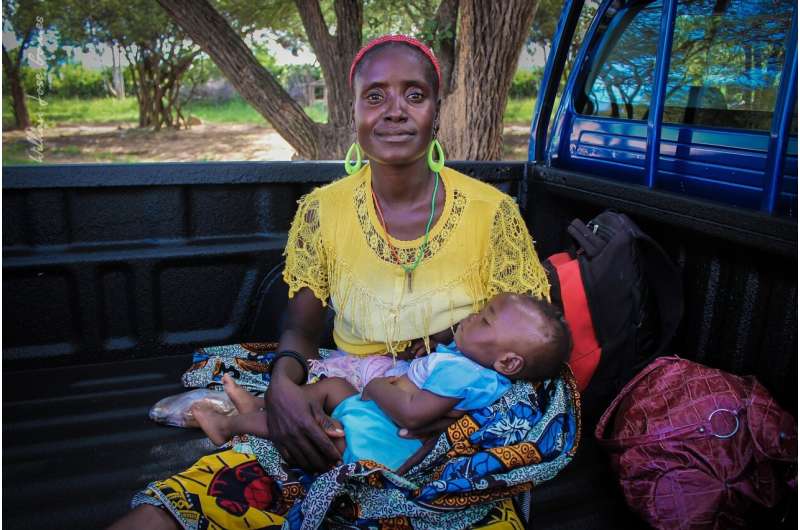Infants born in Tanzanian cities 'twice more likely to die'

Babies born in cities are surprisingly at increased risk of death in their first month of life compared with their counterparts in rural areas in Tanzania, a study says.
In 2019, for every 1,000 live births in Sub-Saharan Africa, 27 were more likely to die within the first month of life, a rate that was ten times that of children born in high-income countries, according to the World Health Organization.
But researchers say that although historically the number of babies who die in their first month of life per one thousand babies born alive—also called neonatal mortality rate—has been higher in rural areas than in cities because of decreased access to healthcare in villages, the rural-urban differences in such deaths have been narrowing in recent times.
The study published in BMJ Global Health this month (5 January) shows that for every 1,000 babies born alive, 20 in rural Tanzania die in their first month of live compared with 38 in cities.
"Even after excluding the effect of other explanatory factors [such as babies with low birthweight], we still saw that neonatal mortality in urban areas remained twice as much as that of rural areas," says Lenka Beňová, a coauthor of the study.
But Beňová, who is an associate professor of maternal and reproductive health at the Institute of Tropical Medicine in Antwerp, Belgium, tells SciDev.Net that their findings do not show any concrete evidence of what might be causing the higher urban neonatal mortality rate. She said her research group was planning to conduct further studies.
"For example, we want to ensure we are measuring the urban versus rural residence of the mothers' households very accurately, and that we consider the effect of mixing up neonatal deaths and stillbirths," Beňová adds.
The study involved the analysis of disparities in newborn death rates using demographic and health surveys of 21 countries in Sub-Saharan Africa. For Tanzania, researchers analyzed the 2015–2016 data to determine the association between residing in urban or rural areas and neonatal mortality after adjusting for risk factors including characteristics of the households, low birth weight, and the environment into which babies are born.
Of the 21 countries, only Tanzania had newborn death rate in cities being significantly more that of rural areas, the study found.
Beňová says that the findings should alert national and local authorities to the fact that preventable neonatal death should be a big concern even in areas with higher accessibility of health care such as cities, and that there is the need for quality care for pregnant women and newborn babies.
The issue of urban infants being at higher risk of dying than their counterparts in cities seems to be emerging in African countries such as Ghana, Kenya and Uganda, according to the study.
But Seyram Wordui, a pediatrician at the Korle-Bu Teaching Hospital in Ghana, says that the findings should be interpreted with caution.
"The demographic and health survey being a household questionnaire is fraught with bias. It is well documented that there is a lot of underreporting of neonatal events, especially deaths that happen outside the healthcare setting," Wordui explains. "In some African cultures, when a newborn dies, the family takes it that the baby 'was not meant to stay," and the event is treated as if it never happened."
Wordui adds that supervised deliveries and appropriate newborn care practices tend to reduce newborn deaths.
"Urban areas in Sub-Saharan Africa usually have more health facilities and personnel and this should translate into less neonatal morbidity [diseases] and mortality in urban areas," she tells SciDev.Net. "Any other conclusion needs further investigation before it can be used to guide interventions or inform policy."
More information: Megan Norris et al, A growing disadvantage of being born in an urban area? Analysing urban–rural disparities in neonatal mortality in 21 African countries with a focus on Tanzania, BMJ Global Health (2022). DOI: 10.1136/bmjgh-2021-007544



















